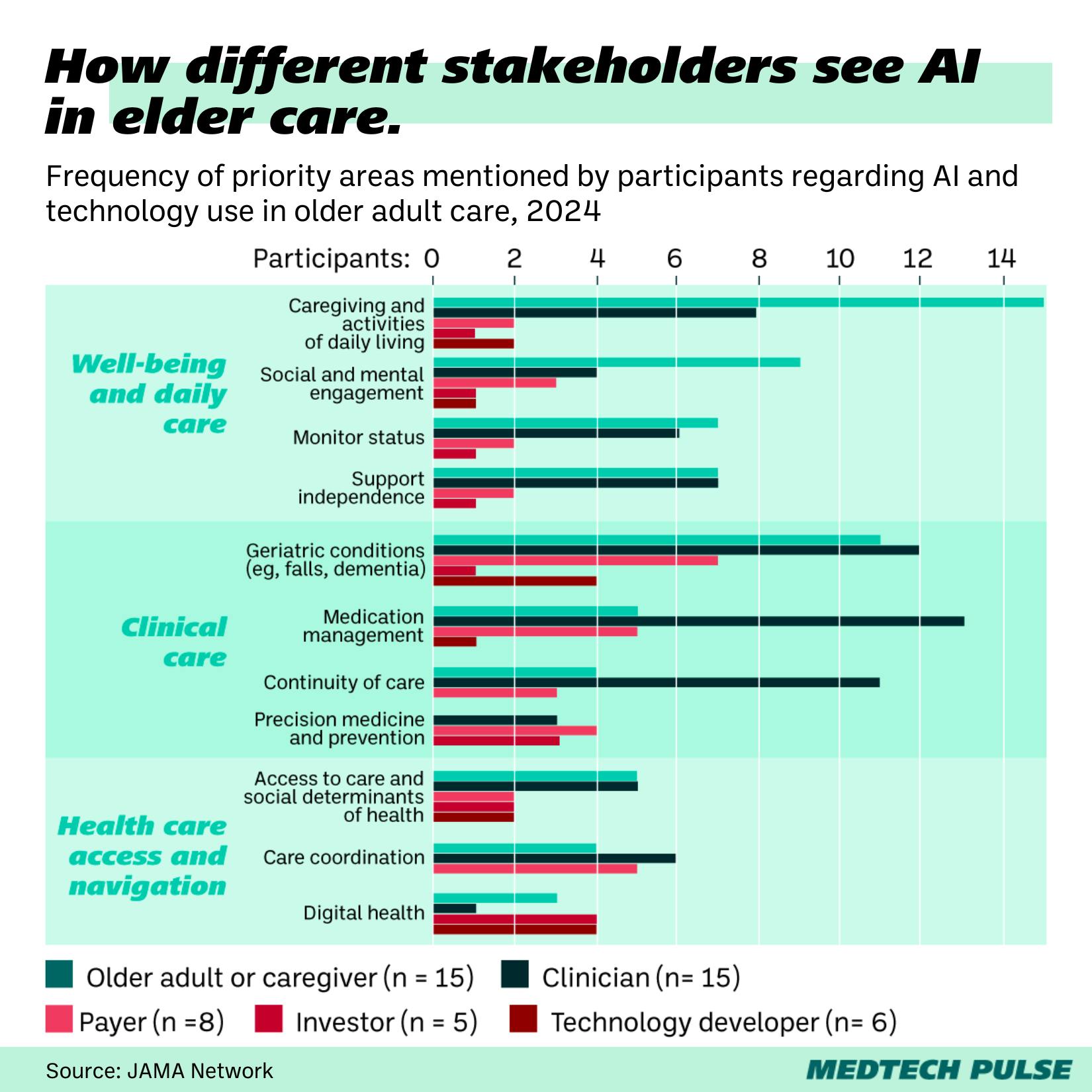Here’s what people in geriatrics think hospital AI should be used for
What does your grandmother think about healthcare AI?
What about her doctor? Or the founder behind the technology her doctor uses?
These are the questions a research team from Johns Hopkins wanted answers for when they interviewed stakeholders from across the older adult healthcare technology ecosystem.
The story: The Johns Hopkins study examined the differences in priorities and opinions regarding AI expressed by patients and providers in geriatrics versus technology developers, investors, and healthcare executives.
The differences appear quite stark:
- Caregivers, patients, and clinicians emphasized the need for support of day-to-day activities and care processes like medication management and maintaining continuity of care.
- Meanwhile, technology developers and hospital executives were more concerned with care efficiency, preventative care, and cost savings.

A big area of need: The care of older adults is its own medical specialty for a reason. Older adults require higher levels of monitoring and intervention, from mediating fall risks to managing complex medication regimens.
- Medtech products like sensors, robotics, and decision support systems have been developed or proposed with geriatrics in mind, and AI can play a significant role in all of them. As with all clinical AI applications, there’s the hope artificial intelligence can make these products work better, to keep older adults healthier more easily.
- However, healthcare is a trust-based industry, as we always say, and geriatrics is especially concerned with long-term care. So, the need to align products with provider, patient, and caregiver needs is critical to successful adoption and positive impact.
An issue of process: Stakeholders like patients and clinicians often don’t get involved in technology development until too late in the process, when it’s too late to examine whether the product matches their needs. That’s exactly what appears to be behind much of the disconnect between tech and end user here.
- The research team behind this study proposed funding incentives that governments could undertake to better align innovation with patient and provider needs.
- Ultimately, products that further all of these ends are necessary, but addressing the most urgent needs is especially important and something we medtech enthusiasts must champion.